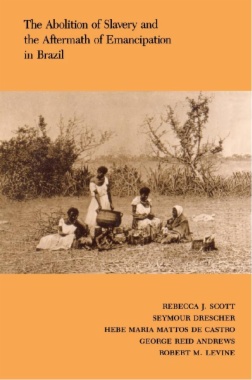In May 1888 the Brazilian parliament passed, and Princess Isabel (acting for her father, Emperor Pedro II) signed, the lei aurea, or Golden Law, providing for the total abolition of slavery. Brazil thereby became the last “civilized nation” to part with slavery as a legal institution. The freeing of slaves in Brazil, as in other countries, may not have fulfilled all the hopes for improvement it engendered, but the final act of abolition is certainly one of the defining landmarks of Brazilian history.
The articles presented here represent a broad scope of scholarly inquiry that covers developments across a wide canvas of Brazilian history and accentuates the importance of formal abolition as a watershed in that nation’s development.
- Contents
- A Note of Introduction
- Exploring the Meaning of Freedom: Postemancipation Societies in Comparative Perspective
- Brazilian Abolition in Comparative Perspective
- Beyond Masters and Slaves: Subsistence Agriculture as Survival Strategy in Brazil during the Second Half of the Nineteenth Century HEBE
- Black and White Workers: Sao Paulo, Brazil, 1888–1928
- “Mud-Hut Jerusalem”: Canudos Revisited
- Index
- Notes on the Contributors

